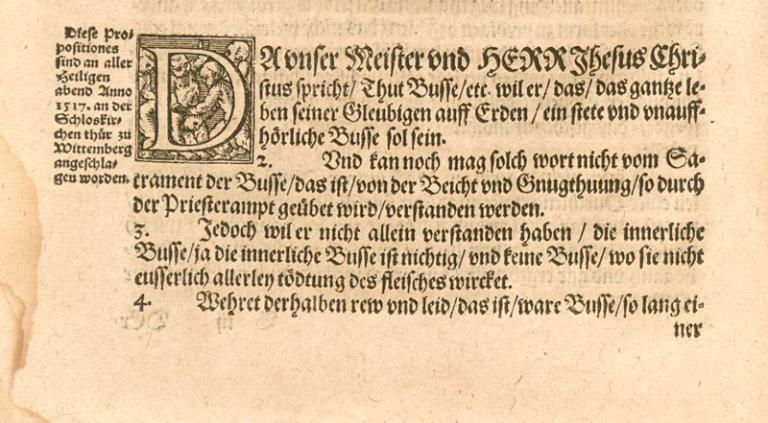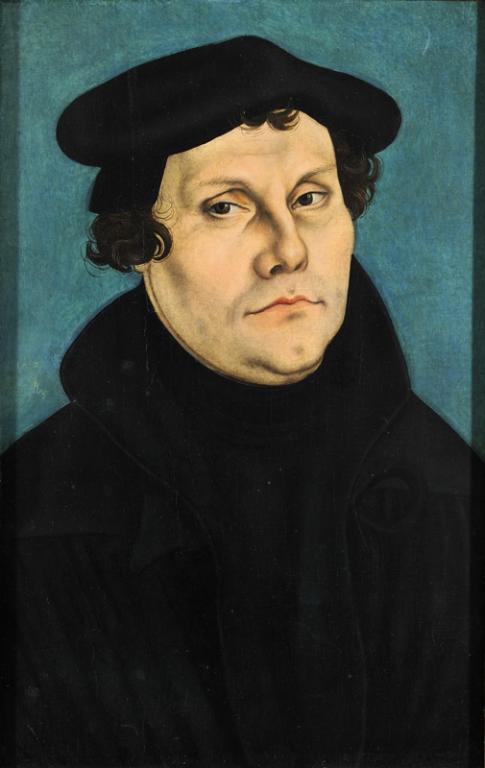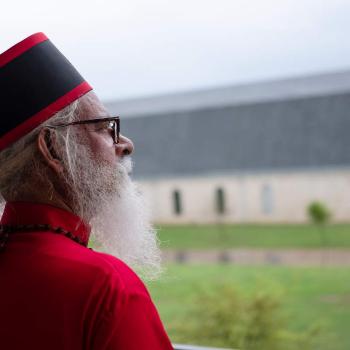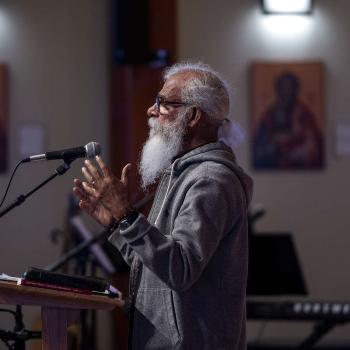I enjoy reading about church history, although I wouldn’t call myself a historian. Other pressing responsibilities keep me from investing the time it would take to do the careful research necessary to write authoritatively about a topic as expansive as the Protestant Reformation or an individual like Martin Luther.
You are probably aware that this October 31st marks the 500th anniversary of the nailing of Luther’s 95 Theses to the Wittenberg Castle Church door. At that time, church front-doors served as what we might call the congregational bulletin-board.

Luther’s points were written in Latin—then the language of the Church. That’s because this was basically a challenge from him to other church leaders to debate the key issues he wanted discussed. Unplanned on his part was their subsequent translation into the common German spoken by the general public and their mass distribution. The printing press, newly available, made this possible.
Was this the beginning of what we think of now as the Protestant Reformation? It certainly was not in the sense that here was something Luther had carefully planned out and this was the launch date. But the answer is yes in that this act on his part set in motion events that soon took on a life of their own.
Did good come out of the Reformation? Favorable Protestant scholars point to great truths being brought to the fore, such as salvation by grace alone. Also, there was the elevation of Scripture as the final authority in all matters of the faith and practice. Many would also add an emphasis on the priesthood of all believers.
But, as is so often the case, there was a negative side to the Reformation as well. The reformers fought among themselves, and soon all kinds of divisions marked the Body of Christ, and still do five centuries later! On top of that, in a day when tolerance had already been proven to not be a Catholic virtue, neither did it mark the emerging Protestants. I’m referring to tolerance for dissenting views among fellow Christians, as well as toward non-Christians, such as the Jews.

So when looking at the Reformation, and leaders such as Luther, we need to be grateful for the obvious good it brought about, while also being aware of its shortcomings. Sometimes I find this a difficult spiritual tightrope to walk. We like to boil down our thoughts and evaluations to something simple and straightforward. Unfortunately, life is seldom packaged as neatly as we’d like. God is always working in and through us, while the enemy is at work to hinder us. None of us at any point have it all together. We are learning and growing in understanding God and His ways day by day while we are still in the dark about so much.
So, should I admire Luther and see him as a role model? In some ways maybe I do, and in other ways I don’t. Fortunately, I know he will find his place in history without my personal opinion mattering all that much.
Meanwhile, I find myself moving back in time more and more and identifying with the much earlier church fathers. I am currently exploring what I can learn from those men and women whose lives were lived closer in time to that of my Lord’s. This is a current journey I would heartily recommend because personally I have found it to be highly satisfying.
I do, however, identify with Luther in the sense that we are seldom in control of events nearly as much as we would like to think we are. That’s why in my mind it is so important to spend quality time in prayer. There is an unseen battle going on that is all too real. The opposition is truly under the control of the mastermind, Satan, and I have found firsthand that he doesn’t fight fair. He spreads lies, lays traps and attacks when his chosen targets are tired or discouraged. If he senses a weakness in his opponent in regard to pride or lust or dishonesty or greed or self-pity, he will exploit it. You can find plenty of commentaries on Luther’s life, as well as writings from Luther himself, that testify to his experience with the spiritual battle he faced.
I doubt that Luther saw himself as a key figure in the history of the Church. My guess is that he was too busy living and serving the Lord to think in those terms. Probably most of those concerned about others recognizing the supposed key role they play in the long tale of the Kingdom of God should leave it to the following generations to decide on their true importance.
At our best we are all too human. Our days pass by much too quickly and we wish we had done more for the Lord than we actually did. Fortunately, when we stand before the Great Judge of the universe, we will not be graded on the curve.
The truth is that all of us should be grateful for any good we brought about during our days, and sorry for our all-too-many shortcomings. Why God would love us as He does remains a mystery.
Only one is deserving of pure praise. He was and is and always will be the key figure in this great story in which we are so deeply involved.
=====
Click here, to read more articles on Patheos by Dr. KP Yohannan Metropolitan.
Go here to know ore about Dr. KP Yohannan: KPYohannan.org | GoodReads | Radio













